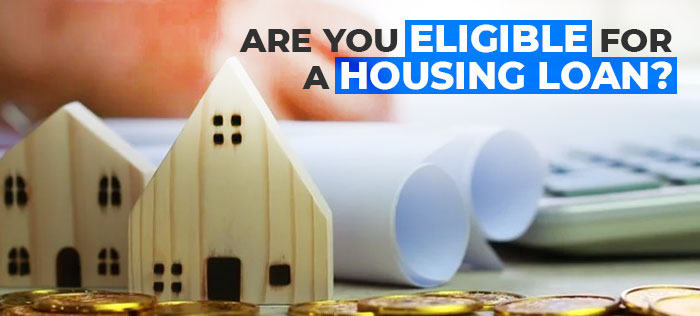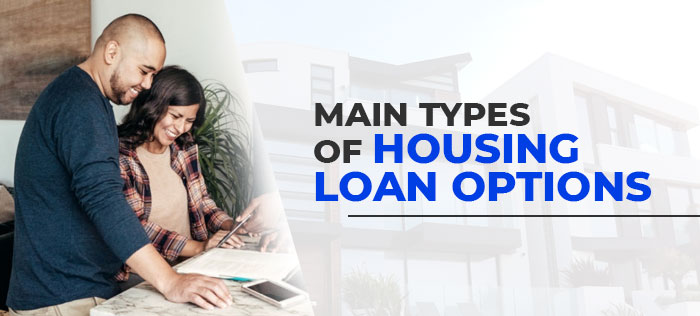One of the dreams that many Filipinos commonly aspire for is to have their own home. For some, it is a personal goal to accomplish. But for others, it is a continuation of the dream their parents once had. Certainly, owning a home is not a simple undertaking as it will require a lot of money. However, it is not an impossible feat especially if you’ll work hard for it. Aside from that, a housing loan in the Philippines is one of the options that you can embark on to make this dream a reality.
If you are interested in acquiring a housing loan and wants to know the most important details about it, here’s a comprehensive guide that you should read.
A Comprehensive Guide About Housing Loan in the Philippines
Housing Loan in the Philippines: An Overview
A housing loan is usually available from banks, real estate developers, or thru Pag-Ibig Fund. It is intended to provide funds for any of the following purposes:
- To acquire a fully developed lot, buy a condo, townhouse, or residential house and lot.
- To fund the construction or completion of a residential property you own.
- To fund the renovation of a residential property.
- To refinance an existing housing loan.
The Housing Loan Process
In the Philippines, acquiring a housing loan enters one into an agreement with the lender with the promise to complete the loan payment over an agreed period or loan tenure.
When paying a housing loan, monthly payments are made until full payment is completed for the principal and interest of the loan. Note that during the initial years of the housing loan, a huge part of your monthly payments would be used for the payment of the interest. After some years, a huge portion of your payments will be used to pay the principal. The interest of your housing loan will be calculated based on the amount you owe on your loan per month. That means that by paying extra monthly, you can expect lower interest payments in the subsequent months.
Are You Eligible for a Housing Loan?
An application for a housing loan in the Philippines is evaluated by the lender to assess your ability to pay the amount you’ll borrow. Below are the eligibility requirements you need to know.
- Income – the amount you earn is one of the basis of being approved for a housing loan. Lenders will look into your credit standing and the stability of your income.
- Age – this is a factor that is being considered in identifying the maximum length of your housing loan term.
- Spouse’s Income – if the housing loan is applied made with your spouse, his/her income will also be subjected to evaluation.
- Dependents – the number of dependents you have is also a factor that will be considered in determining your ability to pay.
- Stability – the continuity of employment is another important factor to establish eligibility. 2 years is the minimum employment requirement. For self-employed or business owners, additional information about your taxes, profits, income, business permits, and other relevant documents must be submitted.
- Credit History – this refers to your record of loan repayment and is reviewed based on different sources such as government agencies, banks, credit cards, and other collection agencies. A good credit history serves as proof that you have the income to pay your bills diligently.
Other Eligibility Requirements:
- Applicant must be between 21 to 65 years old upon loan maturity
- Must be a resident of the Philippines
- OFW applicants must issue a special power of attorney and contract or certificate of employment (COE) approved by the Philippine Overseas Employment Administration (POEA)
- Foreigners must meet VISA requirements. Alien Certificate of Registration must also be submitted.
Required Documents:
- Completed application form
- Two valid IDs
- Proof of income
- Collateral documents
- Marriage contract, if applicable.
- Application form for co-borrower, if applicable.
- Bank or loan statements for the last three months
- Authorization to conduct a background check
Common Reasons for Loan Denial
There are several factors that deny one’s application for a housing loan in the Philippines. This includes the following factors:
- Failure to prove capability to pay the desired loan amount
- Failure to meet eligibility criteria
- Insufficient documents
When a housing loan application is denied, you can apply for another loan but for a different or more affordable property. Another option is to find a co-borrower or search for a lender with less stringent requirements.
Loanable Amount
There are different factors that affect the amount that you can borrow. Where you will borrow from and the location of your desired property are two main considerations.
- For banks, the average loan amount is PHP 800,000 on average. However, this commonly applies to Metro Manila projects. If outside the metro, a lower loanable amount may apply.
- If a housing loan will be made with Pag-IBIG, the amount ranges from PHP 600,000 to PHP 6 million and will depend on your actual fund requirement and your capacity to pay.
- For housing loans through in-house financing, the amount that can be loaned will depend on the real estate developer.
Main Types of Housing Loan Options
There are two main types of housing loan in the Philippines: Conventional and Flexible.
Conventional
This type of housing loan requires fixed payments over a certain period. A conventional housing loan is most ideal for those who prefer a predictable payment scheme in order to plan finances ahead of time.
Flexible
This is the type of housing loan usually offered by banks. With this option, you can control the interest rate of your loan depending on the amount you will deposit. Principal repayment can also be made anytime.
Housing Loan Options Based on Financing Schemes
1. Bank Financing
Housing loans are offered in most banks in the country. The loanable amount and terms vary from bank to bank. It also usually requires a rigorous application process.
2. Pag-IBIG
Pag-IBIG is a government agency that allows its members to apply for a housing loan. The maximum loanable amount is Php 6,000,000.00 for those who will buy a condo, house or residential lot.
3. In-House Financing
Real estate developers in the Philippines also offer housing loans through in-house financing. Usually, this loan option has a tenure of 5 years maximum.
If you are interested to buy a condo or own a home in the key locations in the Philippines, CitiGlobal offers great options for you. Connect with us today so we can assist you in acquiring the property that meets your requirements.
When You Should Apply for a Housing Loan in the Philippines
The most common reason to apply for a housing loan in the Philippines is to finance a home purchase. However, you should know that it isn’t limited to that. There are other reasons why you should apply for a housing loan in the Philippines.
Buy a House
This is the most common reason why people apply for a housing loan. You can secure this loan from banks, real estate developers, and government agencies whether you’re eyeing to buy a condo in the Philippines, a house and lot, or lot only.
Build a House
If you already have a lot and you need to finance home construction, you can also apply for a housing loan. This way, you can secure the fund you need for the purchase of building materials, processing of fees, and payment of labor throughout the construction.
Improve Your Home
Are your home renovation plans being put off due to insufficient funds? You can apply for a housing loan to get the money you need for home renovation, remodeling, repair, or extending a part of your house to build more rooms.
Refinance Your Loan
If you have a current home loan, you can also apply for a home loan refinancing. This will allow you to change your old mortgage to a new one with better terms that are more suitable for your needs.
Get Home Equity
A housing loan is also an option if you want to borrow money against your property’s value. Through a home equity loan, you can have the funds you need for other expenses including education, business, investment, and others.
Important Housing Loan Terminologies
Principal – the total amount of the loan
Downpayment – the upfront payment you’ll need to buy a house in the Philippines and usually makes up 20% of the total amount.
Interest Rate – the charge incurred for the use of money and is displayed annually also known as APR or Annual Percentage Rate.
Loan Tenure – the number of months or years wherein a housing loan can be repaid. The longer the term, the higher the interest rate.
Prepayment – the partial payment made before the due date of a loan.
Refinancing – the payment made for an existing loan through a new housing loan with more affordable rates.
Foreclosure – properties with unsettled loan amount and repossessed by banks. Foreclosed properties are sold by banks to settle the outstanding loan balance.
Tips Before Applying for a Housing Loan
1. Identify your needs. As mentioned, a housing loan in the Philippines may be used for a range of purposes. Will you be needing funds for renovation, home construction, or to buy a new home? Know your needs to know where it is best to apply for a housing loan.
2. Prepare your money. Aside from the downpayment, there are other fees that you’d need to settle. These include transfer taxes, application fees, and notary fees.
3. Start clean with your finances. Before applying for a new loan, it is ideal to first pay off your existing debts. Not only will this establish a good credit history, but it will also help put your finances in order.
4. Know your options. Do your research. Know existing lenders and compare. This will give you an overview of their eligibility requirements, terms, interest rates, and other information that matters to you and may impact your loan approval.
5. Consult professionals. Real estate brokers and mortgage professionals can offer you help to make the process of housing loan application a smooth process.
ALSO READ: The Extensive Guide to Buying Land in the Philippines
Owning a home in the Philippines may not be that simple especially if you don’t have enough savings to buy the house of your dreams or start construction in a property you own. Fortunately, there are housing loan options that can help you secure a home and make payments based on terms that meet your capability.
If you’re looking for a real estate developer that offers high-quality properties through in-house financing, CitiGlobal has developments in locations that are most sought by home buyers. Speak to us today so we can assist you with your application.







